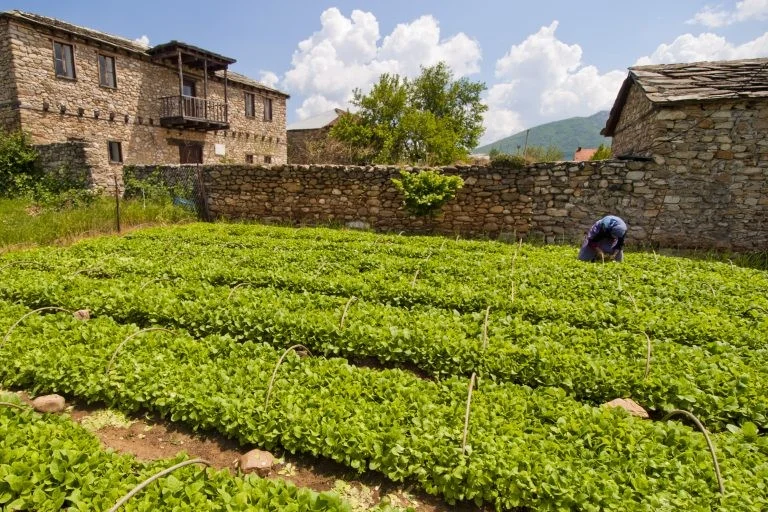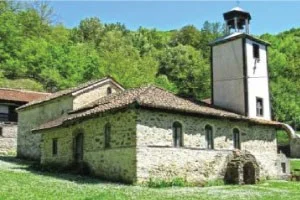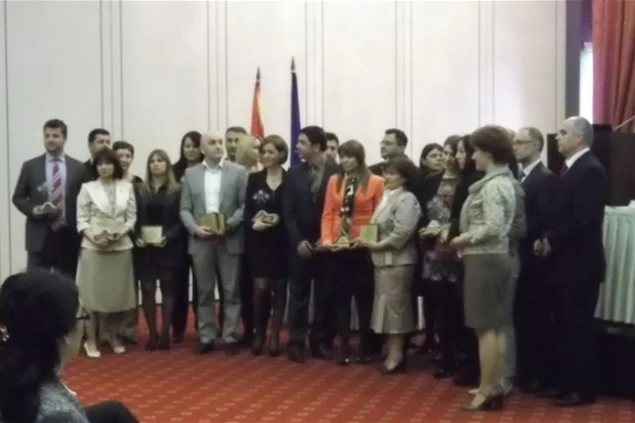Sustainable Agriculture in Macedonia Boosted by Training Programs

Sustainable Agriculture in Macedonia: Challenges and Progress
Sustainable agriculture has recently garnered significant interest in Macedonia. While the country’s diverse and often rugged terrain makes farming unpredictable, it also encourages farmers to seek innovative techniques and technologies to ease their work and improve crop yields.
Challenges in Promoting Sustainable Agriculture
Despite the interest, certain challenges hinder the adoption of sustainable practices:
- State-Owned Pastureland: Most pastureland is owned by the state and often in poor condition.
- Small Farm Sizes: The majority of farms are relatively small, making it difficult for farmers to achieve economies of scale that could enhance competitiveness and reduce costs.
Initiatives Driving Sustainable Agriculture
The United Nations Development Programme (UNDP) and other stakeholders have implemented several initiatives to promote sustainable agriculture in Macedonia. These efforts form a multi-pronged approach that addresses challenges at multiple levels.
U.N. Training Programs
The U.N. has organized training programs for Macedonian farmers and their counterparts in other Eurasian countries. These programs focus on:
- Selecting crops suitable for the environment.
- Reducing reliance on wasteful irrigation practices.
- Providing tips to save money and remain competitive in the global economy, even for small farms.
The training also fostered networking opportunities among farmers, enabling them to share experiences and learn from techniques developed by fellow participants.
Financial Assistance
Farmers were informed about available grants and subsidies for adopting sustainable practices. Financial support is critical, as the high cost of transitioning to sustainable methods remains a significant barrier for many farmers.
Role of NGOs and Regional Organizations
In addition to international efforts, NGOs play a pivotal role in advancing sustainable agriculture in Macedonia.
- Sustainable Agriculture for Sustainable Balkans (SASB):
Working closely with the EU, this organization focuses on:- Collecting and distributing information to help farmers make informed decisions.
- CeProSARD:
This organization emphasizes rural development, which aligns with agricultural progress. Its activities include:- Funding research on best practices.
- Networking with farmers and stakeholders.
- Advocating for meaningful policy changes.
The Importance of External Support
Macedonia exemplifies how external support can accelerate sustainable agricultural practices. While key stakeholders are often aware of existing issues and eager to address them, they require guidance and resources. International and regional support provides the necessary framework for:
- Rapid and impactful improvements.
- Empowering local actors to implement and sustain changes effectively.
By continuing to support Macedonia’s transition to sustainable agriculture, the international community can play a vital role in fostering progress and resilience in the sector.
 Albania
Albania Algeria
Algeria Andorra
Andorra Argentina
Argentina Armenia
Armenia Australia
Australia Austria
Austria Azerbaijan
Azerbaijan Bahrain
Bahrain Belgium
Belgium Bolivia
Bolivia Brazil
Brazil Bulgaria
Bulgaria Cambodia
Cambodia Cameroon
Cameroon Canada
Canada Chad
Chad Chile
Chile China
China Colombia
Colombia Costa Rica
Costa Rica Croatia
Croatia Cyprus
Cyprus Czechia
Czechia Denmark
Denmark Ecuador
Ecuador Egypt
Egypt Finland
Finland France
France Georgia
Georgia Germany
Germany Ghana
Ghana Greece
Greece Hungary
Hungary Iceland
Iceland India
India Indonesia
Indonesia Ireland
Ireland Italy
Italy Jamaica
Jamaica Japan
Japan Jordan
Jordan Kazakhstan
Kazakhstan Kenya
Kenya Kuwait
Kuwait Latvia
Latvia Lebanon
Lebanon Libya
Libya Lithuania
Lithuania Luxembourg
Luxembourg Malaysia
Malaysia Maldives
Maldives Mali
Mali Malta
Malta Mexico
Mexico Moldova
Moldova Monaco
Monaco Morocco
Morocco Netherlands
Netherlands New Zealand
New Zealand Nigeria
Nigeria North Macedonia
North Macedonia Norway
Norway Oman
Oman




